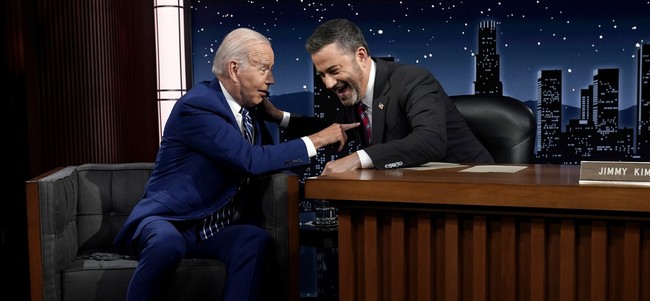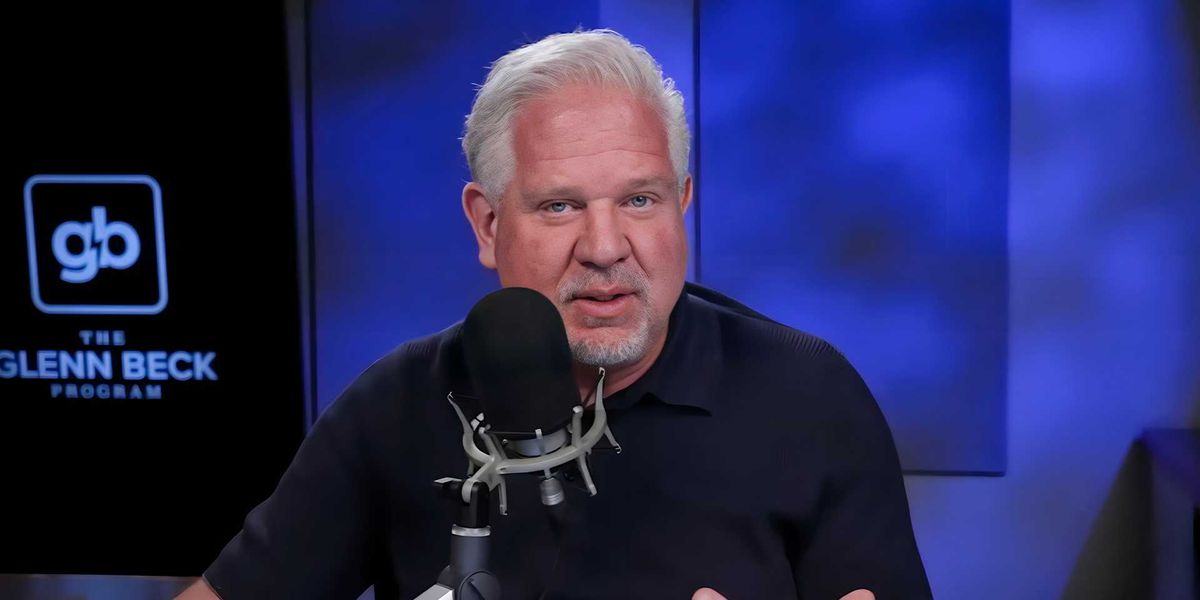Jimmy Kimmel’s comments about the assassination of conservative activist Charlie Kirk have triggered fallout beyond the late-night host’s suspension, with repercussions now extending to one of the largest broadcast deals currently before federal regulators.
Telecom insiders told On The Money that Kimmel’s remarks, which critics described as offensive and misleading, threaten to derail Nexstar Media Group’s $6.2 billion acquisition of Tegna.
The merger would combine two of the nation’s biggest owners of local television stations, raising significant antitrust questions.
The deal requires approval from the Federal Communications Commission, which is led by Chairman Brendan Carr.
Nexstar announced Thursday that its stations would no longer air Kimmel’s program.
The decision came as Disney, which owns ABC and produces “Jimmy Kimmel Live!,” also moved to suspend the show indefinitely.
Disney is simultaneously seeking FCC approval for a high-value NFL rights deal for ESPN, making the timing of the controversy particularly problematic for the company.
This Could Be the Most Important Video Gun Owners Watch All Year
On the same day, Sinclair Broadcasting — another major station owner with a large conservative audience — said Disney’s suspension of Kimmel was insufficient.
Sinclair declared that it would remove the program from its stations until Kimmel issues a direct apology to Kirk’s family and donates to Kirk’s political organization.
The developments come against the backdrop of Carr’s increasingly aggressive approach to media regulation.
A longtime telecom lawyer, Carr has been vocal about expanding the FCC’s authority to ensure programming serves the “public interest.”
He has warned that one-sided or highly partisan content on broadcast networks could face greater scrutiny, regardless of First Amendment considerations.
Carr’s influence has already been felt across the industry.
Paramount recently settled a lawsuit with President Donald Trump over CBS’s interview with Kamala Harris during the 2024 campaign, amid concerns the FCC would block its proposed $8 billion sale to Skydance.
CBS also cancelled Steven Colbert’s late-night show, which had been struggling financially and politically.
Other networks have made similar moves. ABC paid $16 million to settle a lawsuit with President Trump tied to remarks by George Stephanopoulos.
Industry observers say the settlements reflect growing concern that the FCC could deny license renewals or merger approvals if programming is deemed not in the public interest.
Unlike cable outlets, broadcast networks rely on FCC-issued licenses to operate over public airwaves.
The commission has the authority to revoke or withhold those licenses, giving it significant leverage over content aired by local affiliates of ABC, CBS, NBC, and Fox, along with companies such as Nexstar that distribute their programming.
Traditionally, the FCC has allowed wide latitude on programming, restricting only obscenity.
That policy allowed late-night hosts like Colbert and Kimmel to air political commentary, even if it provoked controversy. Kimmel’s recent remarks, however, drew direct criticism from Carr.
Kimmel told his audience Monday that conservatives were “desperately trying to characterize this kid who murdered Charlie Kirk as anything other than one of them and doing everything they can to score political points from it.”
The statement angered conservatives and prompted questions about whether the host was spreading a misleading narrative.
While such comments would typically fall under protected speech, Carr has argued the First Amendment does not guarantee broadcasters the right to operate on public airwaves.
In a Wednesday interview with Fox News host Sean Hannity, Carr said: “Running a narrow partisan circus, whatever the public interest means, it’s not that.”
Nexstar’s situation is particularly precarious.
Already one of the largest operators of ABC affiliate stations, it owns more than 30 that carried Kimmel’s program before his suspension.
Its planned acquisition of Tegna, announced in August, would expand its footprint to 265 stations in 44 states, covering about 80 percent of U.S. households.
In some markets, the combined company would control three or four stations.
That level of consolidation requires FCC approval, and insiders say Nexstar’s quick decision to drop Kimmel’s show was an effort to stay on good terms with regulators.
As one telecom lawyer noted, “Clearly, Nexstar is sucking up to Carr. Kimmel’s comments are noxious, but from a First Amendment standpoint, they would have been protected in the past. He’s a comedian, so how is he distorting the news unless you have a deal to be approved by the FCC?”
Whether Nexstar’s strategy will succeed remains uncertain.
With both Nexstar and Disney facing separate but overlapping requests before the FCC, the controversy surrounding Kimmel has become a complicating factor in a broadcast industry already under heightened scrutiny.
The opinions expressed by contributors and/or content partners are their own and do not necessarily reflect the views of LifeZette. Contact us for guidelines on submitting your own commentary.
Read the full article here


![Is This the Real Reason Jimmy Kimmel Got Suspended? [WATCH] Is This the Real Reason Jimmy Kimmel Got Suspended? [WATCH]](https://www.boredtrashpanda.com/wp-content/uploads/2025/09/2025.09.19-11.04-boredtrashpanda-68cd38af0d598.jpg)




![Trump Makes Major Move Against Minnesota Somalis in Wake of Massive Fraud Scandal [WATCH] Trump Makes Major Move Against Minnesota Somalis in Wake of Massive Fraud Scandal [WATCH]](https://www.lifezette.com/wp-content/uploads/2025/11/2025.11.22-01.09-lifezette-6921b6030b5f7.jpg)


![Supreme Court Blocks Judge’s Order Tossing Texas Redistricting Maps [WATCH] Supreme Court Blocks Judge’s Order Tossing Texas Redistricting Maps [WATCH]](https://www.lifezette.com/wp-content/uploads/2025/04/2025.04.21-09.15-lifezette-68060c9d4995e.jpg)

